When Scotland was still Labour and devolution was still young - a look back at the 2001 general election 20 years ago today
and live on Freeview channel 276
Let us know what you think and join the conversation at the bottom of this article.
A foot and mouth outbreak, which eventually saw six million sheep, cattle and pigs slaughtered across the UK, had forced polling day, originally planned for May 3, to be postponed for a month. Travel was restricted, tourism nose-dived and huge bonfires of carcasses burned across the country. But by the beginning of May the prime minister said the fight against the outbreak was finally being won – and called the election for June 7.
Labour had been comfortably ahead in the polls for months and it stayed that way throughout the campaign, even though the gap narrowed.
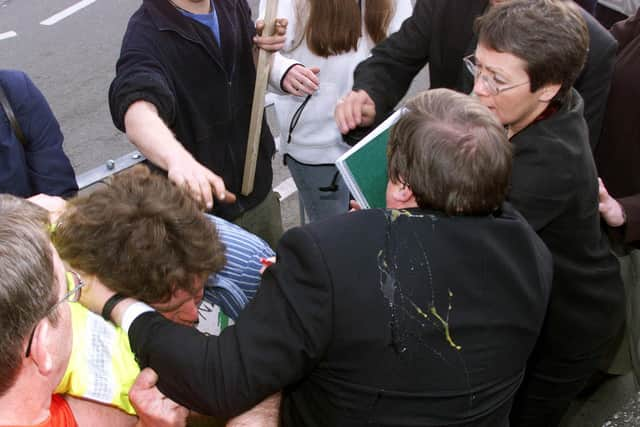

Advertisement
Hide AdAdvertisement
Hide AdMr Blair, who had been elected Labour leader in 1994 after the death of John Smith and had refashioned the party as "New Labour , had won a landslide victory at the 1997 general election to end 18 years of Tory government under Margaret Thatcher and then John Major.
By 2001 he had introduced a national minimum wage and completed Smith's "unfinished business" by delivering devolution, though there had also been a public spending squeeze, including a cut to lone parent benefits which saw Edinburgh North and Leith MP Malcolm Chisholm resign after just a few months as a Scottish Office minister.
The Tories were now led by William Hague, who had beaten Ken Clarke and Michael Howard for the job just weeks after the 1997 election defeat. But he was seen as a negative factor on the doorstep and at one point in the campaign registered a minus-42 per cent approval rating in Scotland. The party had lost all their Scottish seats in 1997 and managed to regain only one in 2001. Among its new English MPs elected in 2001 were Boris Johnson, David Cameron and George Osborne.
Liberal Democrat leader Charles Kennedy, who had taken over from Paddy Ashdown two years earlier, was not all that well-known to voters at the start of the campaign but his popularity grew while the other leaders’ fell. His party increased its vote and its seats, holding onto its 10 Scottish MPs with a 3.4 per cent rise in its vote north of the border.
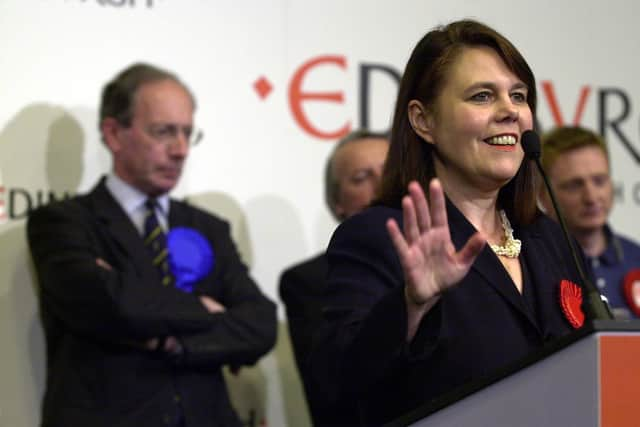

Advertisement
Hide AdAdvertisement
Hide AdThe SNP – whose leader John Swinney had replaced Alex Salmond nine months earlier – did not fare so well, dropping from five seats to four and seeing its vote fall by two per cent. But the party was less interested in the Westminster election and more focused on the next Scottish Parliament election in 2003.
The most memorable event of the whole campaign was when Deputy Prime Minister John Prescott punched a protester after being hit by an egg as he arrived to speak at a rally in North Wales. The incident could have proved damaging but was treated in a fairly light-hearted way and Mr Prescott’s left jab was later judged overall as a positive for Labour.
The Scottish Parliament was just two years old at the time of the 2001 general election and still meeting at its temporary home in the General Assembly Hall at The Mound – the move to Holyrood was still three years away. Henry McLeish had been First Minister for just over six months following the death of Donald Dewar.
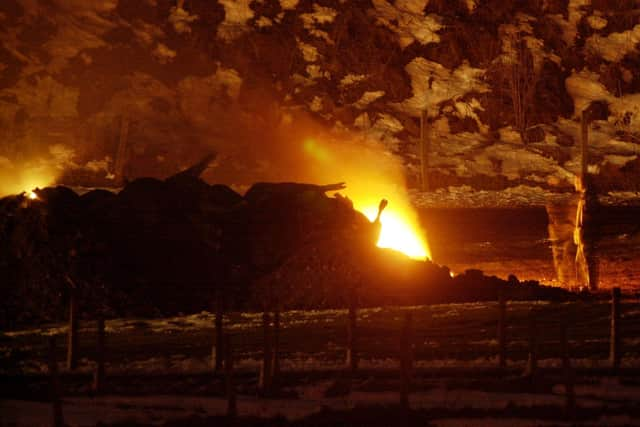

After Labour’s UK manifest launch for the election, Tony Blair signalled he wanted to give private firms a bigger role in providing state-run services and said he hoped private hospitals wold carry out a million operations for the NHS. But in a clear sign that Scotland and the rest of the UK were already beginning to diverge, a source close to Mr McLeish was quoted saying there was “neither the need nor the mood” among ministers and MSPs for such a level of private involvement in the NHS here.
Advertisement
Hide AdAdvertisement
Hide AdThirteen of Scotland’s 129 MSPs were still also members of the UK parliament. But now most of them gave up their Westminster seats to concentrate on their devolved responsibilities.
These included Labour's Malcolm Chisholm who passed the torch to Mark Lazarowicz in Edinburgh North & Leith and Lib Dem Donald Gorrie who stood down in Edinburgh West, making way for John Barrett. East Lothian Labour MP John Home Robertson also stepped down to be replaced by Anne Picking.
Alex Salmond, having resigned as SNP leader, decided to give up his Holyrood seat and retain his Westminster one.
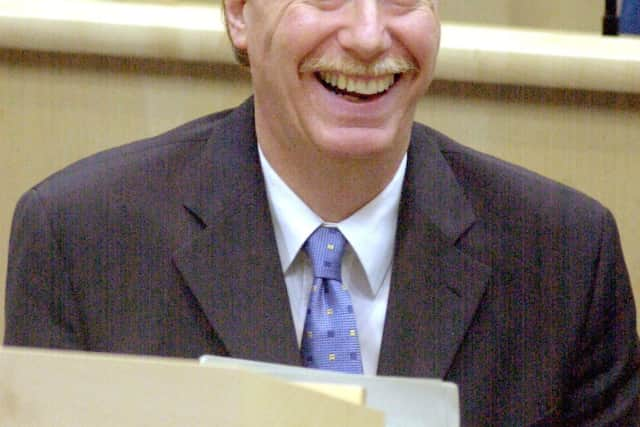

Former Foreign Secretary Malcolm Rifkind, knighted in John Major’s resignation honours list, was aiming to win back the Edinburgh Pentlands constituency he had held for 23 years before losing it in the Tories’ 1997 wipe-out. Labour’s Lynda Clark, who ousted him, had been criticised for having a low profile, but the Evening News reported at the time Sir Malcolm had vetoed the idea put forward by some of his aides for a poster offering a prize if locals could name their MP. Despite his efforts, when the votes were counted at Meadowbank Dr Clark won again, albeit with a majority down from 4,862 to 1,742.
Advertisement
Hide AdAdvertisement
Hide AdIn Edinburgh Central, Alistair Darling – who was Work and Pensions Secretary at the time – was re-elected with an 8,142 majority but the Lib Dems jumped from fourth to second place. It was the last election for Edinburgh Central as a UK constituency – the seat disappeared in boundary changes before the 2005 general election.
Labour's Mark Lazarowicz won in Edinburgh North & Leith with an 8.817 majority, the Lib Dems in second place and the SNP – represented by Kaukab Stewart, who last month became the first woman of colour to be elected to Holyrood – was third.
Veteran Labour MP Gavin Strang won again in Edinburgh East with 52 per cent of the vote and a 12,168 majority. The SNP's Rob Munn was runner-up.
Nigel Griffiths was returned for Labour in Edinburgh South with a 5,499 majority and Lib Dem Marilyne MacLaren in second place.
Advertisement
Hide AdAdvertisement
Hide AdAnd Lib Dem John Barrett won a 7,589 majority in Edinburgh West to succeed Donald Gorrie, who was serving as a list MSP for Central Scotland. Labour finished second and Tory Iain Whyte was third.
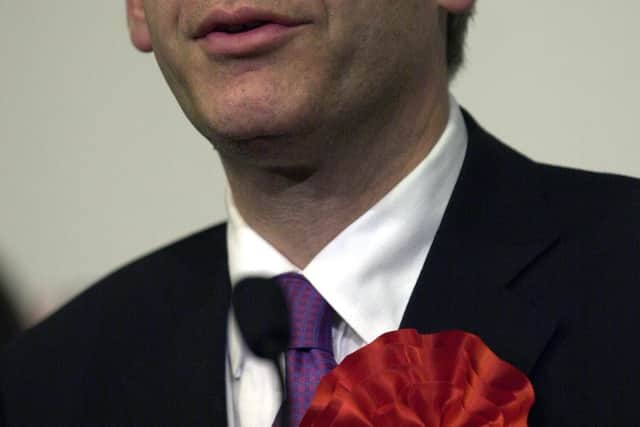

There was a major jobs blow to Lothian in the run-up to the election when Motorola announced the closure of its mobile phone plant in Bathgate with the loss of 3,100 jobs. The company blamed a a sharp fall in global demand, but the unions said it was a kick in the teeth for the loyal workforce.
But it did not appear to have any major effect on the election. Labour veteran Tam Dalyell was re-elected MP for Linlithgow with a 9,129 majority to become Father of the House in the new parliament before retiring in 2005 and Robin Cook, Foreign Secretary since Labour came to power in 1997, won again in Livingston with a 10,616 majority.
In another safe Labour seat, Midlothian, former miner David Hamilton succeeded Eric Clarke, who had been the MP since 1992.
Advertisement
Hide AdAdvertisement
Hide AdIn the end, Labour won 56 out of the 72 Scottish seats, the same as before, despite a slight drop in their vote.
Only one seat changed hands in the whole of Scotland – the Tories’ Peter Duncan took back Galloway and Upper Nithsdale from the SNP.
But the Tories' total share of the vote across Scotland fell again and the party dropped to fourth place behind the SNP and the Lib Dems.
All parties except the Lib Dems saw their share of the vote down from 1997.
Advertisement
Hide AdAdvertisement
Hide AdAnd turnout was just 58.2 per cent, the lowest since 1918 and slightly lower than the rest of the UK
A message from the Editor:
Thank you for reading this article. We're more reliant on your support than ever as the shift in consumer habits brought about by coronavirus impacts our advertisers.
If you haven't already, please consider supporting our trusted, fact-checked journalism by taking out a digital subscription.
Comment Guidelines
National World encourages reader discussion on our stories. User feedback, insights and back-and-forth exchanges add a rich layer of context to reporting. Please review our Community Guidelines before commenting.
